Mark Anthony Neal's Blog, page 269
November 28, 2020
Provocation and Follow-Through: Julia Bullock Talks With Lara Downes
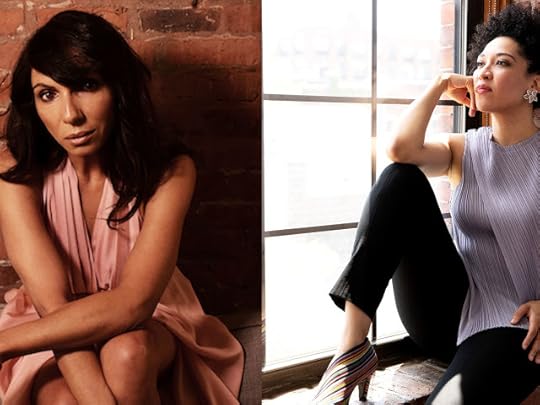
'Julia Bullock is an artist who dares you to find new adjectives. The soprano is often described as "radiant," an overused word that actually describes her surprisingly well. Onstage, she's a shapeshifter, ranging from elegant and commanding to bewitching, provocative and dangerous – but consistently intelligent and nuanced. Offstage, she can be goofy. In this conversation with Amplify host Lara Downes, Julia says, "When I'm in community with others there's just no stopping what can be done." In music, activism, advocacy, mentorship and mission, Julia is bound and determined to leave the music world, and the world at large, different than she found them.' -- NPR Music
System Check with Melissa Harris-Perry and Dorian Warren: It’s Time America Abolished Poverty

'On this episode of System Check, Melissa Harris-Perry and Dorian Warren ask: How can we eradicate poverty in America? It's not just about jobs, and the answers are common sense, but radical: To end poverty, we need to meet people’s real needs, like food, or diapers, or childcare, but we also need to disrupt and reform the systems that keep people in poverty, and we need to give people the power to smash through the structures holding them back. They are joined by Rev. Dr. Liz Theoharis, co-director of the Kairos Center and national co-director of the Poor People’s Campaign and Mary Kay Henry, President of SEIU.'
November 26, 2020
Kevin Young Reads Angelina Weld Grimké’s poem ‘The Black Finger’
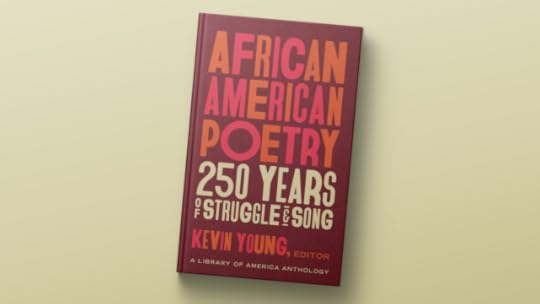
'Kevin Young, who edited a new anthology of Black poetry, reads Angelina Weld Grimké’s poem “The Black Finger.” No book of poetry from Angelina Weld Grimké was published during her lifetime, though her poems did appear in newspapers and other publications in the 1920s, which means she is often grouped with the writers of the Harlem Renaissance, Young told the PBS NewsHour’s Jeffrey Brown. However, the new Library of America anthology of Black poetry, called “African American Poetry: 250 Years of Struggle and Song,” points to her works that predate that artistic movement, including a mention of her 1916 anti-lynching play “Rachel,” and love poems written to a woman in the 1890s. “The Black Finger” appears as one of several Grimké’s poems that appears in the poetry collection.'
The DNA of a Black Woman by Chuck Richardson
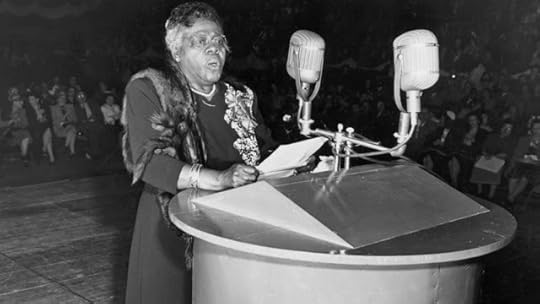
The DNA of a Black Woman
by Chuck Richardson | special to NewBlackMan (in Exile)
There is something magical about a fearless, intelligent, incorruptible black woman. A woman willing to sacrifice and face any obstacle she must for a greater cause than herself. Black women have been, and continue to be, the crucible of fortitude. Harriet Tubman, Ida B. Wells, Mary McLeod Bethune, Fannie Lou Hamer and thousands beside them have been the bedrock of African-American progress.
I realized in my late twenties that if you want to get it done – you better have black women involved. That was when I, in 1977, ran for and won a seat on the first majority Black city council in Richmond, Va. It was the determination of Black women, some more than twice my age, that made the history possible.
When those Black women spoke, weathered by storms of racism, deprivation and personal abuses, it changed the atmosphere.
A crowd of timid, doubtful or unfocused lambs became ferocious lions. People today might speak of my legacy of achievements in Richmond, but they don’t know the source of my confidence. I can’t recall the number of times strong black women lifted me and forged new inspiration.
From the late seventies to the early nineties, I won nine consecutive re-elections. Any success reached by fighting the good fight, including my relentless efforts over two decades to remove the Confederate monuments on Monument Ave, were only possible because of the victories won for me by these women. Black men in my campaigns were strong and forceful, the physical image the organization needed, I don’t deny that. But diligence was more often worn by the women.
I remember one election when I needed 20 new people registered as voters in each precinct. The young volunteers would bring back three or four and a handful of excuses. But there were elder women, some who did not walk easily, who would return with the full number. One of them said to a young person, “You don’t win elections with good excuses – you need voters!”
Women like Bessie Jones, Elaine Dunn or Luetta B. Wooldridge, who were managers and coordinators for my campaigns. And they stood with me in difficult times when very few had the will.
Rev. Sarah Goshen, an older Black woman with a calm but convincing demeanor, stood up in a storm of attacks on my character during a controversial and profound personal battle. She admonished the men who chose to disregard my history of service to my country, and more directly, to the African-Americans in Richmond. Rev. Goshen stood with the same solidarity and courage that defined her fore mothers, “Don’t abandon the bridge that brung you 'cross!” she demanded. My spirit rose to the ceiling.
“Don’t abandon the bridge that brung you 'cross.” It has indeed been a bridge, one more river to cross for Black Americans. Two-hundred fifty years of slavery and Jim Crow seems to have developed a certain ‘DNA’ in Black women.
Because, to watch as your child is torn away, or your man absolutely emasculated and denied any dignity, to have your body raped and to endure a brutalized life of labor, something had to evolve in the ‘DNA’ of Black women.
A new measure of courage, strength, dignity and faith saved them; the crucible of fortitude. They marched on and we march on today. America is more divided perhaps since slavery itself. But Black women have our backs, still enduring, fighting the good fight.
Women like my own sister, Valerie Richardson Jackson, the former first lady of Atlanta, who persevered with myself as one of the first students integrating our high school. Becoming one of the first black women to attend the Wharton School of Business ( now led by a black woman ), working and paying her way through, earning her M.B.A.
She went on to market General Foods products and gained a regional role at Trans World Airlines corporate headquarters in New York. Because a strong, smart black woman is not to be passed over, she won the heart of and married a man who was certainly the most consequential politician in the history of Atlanta: Mayor Maynard Jackson. Maynard always said of Valerie, “She enables me.”
The nation has recently come to know two more amazing Black women: Democratic activist, Stacey Abrams, and Sen. Kamala Harris; now Vice President-elect. Stacey Abrams showed her ability early, in front of the very Atlanta City Hall that Maynard occupied.
She led a large group of university students calling on the mayor to address student issues. Maynard was impressed and invited her to meet with him. Afterward, he gave Ms. Abrams her first job in politics. The rest is history: a heroic race for governor of Georgia, and a voter registration movement that is unprecedented, and driving the numbers to heights heretofore unseen - a democratic movement that has already become a model for the nation.
Valerie has always been a strong supporter of both Stacey Abrams and Kamala Harris. Three friends, three Black women, three lessons we should take from them – and history. With a Black woman becoming vice-president, we should keep in mind what it took, because we will need it going forward: patience with diligence, courage with wisdom, boldness with conviction. In other words, Black women.
+++
Chuck Richardson, a former 18-year veteran of the Richmond City Council, is founder of the National Organization of Rehabilitated Offenders (NORO).
The DNA of a Black Womanby Chuck Richardson | special to ...

The DNA of a Black Woman
by Chuck Richardson | special to NewBlackMan (in Exile)
There is something magical about a fearless, intelligent, incorruptible black woman. A woman willing to sacrifice and face any obstacle she must for a greater cause than herself. Black women have been, and continue to be, the crucible of fortitude. Harriet Tubman, Ida B. Wells, Mary McLeod Bethune, Fannie Lou Hamer and thousands beside them have been the bedrock of African-American progress.
I realized in my late twenties that if you want to get it done – you better have black women involved. That was when I, in 1977, ran for and won a seat on the first majority Black city council in Richmond, Va. It was the determination of Black women, some more than twice my age, that made the history possible.
When those Black women spoke, weathered by storms of racism, deprivation and personal abuses, it changed the atmosphere.
A crowd of timid, doubtful or unfocused lambs became ferocious lions. People today might speak of my legacy of achievements in Richmond, but they don’t know the source of my confidence. I can’t recall the number of times strong black women lifted me and forged new inspiration.
From the late seventies to the early nineties, I won nine consecutive re-elections. Any success reached by fighting the good fight, including my relentless efforts over two decades to remove the Confederate monuments on Monument Ave, were only possible because of the victories won for me by these women. Black men in my campaigns were strong and forceful, the physical image the organization needed, I don’t deny that. But diligence was more often worn by the women.
I remember one election when I needed 20 new people registered as voters in each precinct. The young volunteers would bring back three or four and a handful of excuses. But there were elder women, some who did not walk easily, who would return with the full number. One of them said to a young person, “You don’t win elections with good excuses – you need voters!”
Women like Bessie Jones, Elaine Dunn or Luetta B. Wooldridge, who were managers and coordinators for my campaigns. And they stood with me in difficult times when very few had the will.
Rev. Sarah Goshen, an older Black woman with a calm but convincing demeanor, stood up in a storm of attacks on my character during a controversial and profound personal battle. She admonished the men who chose to disregard my history of service to my country, and more directly, to the African-Americans in Richmond. Rev. Goshen stood with the same solidarity and courage that defined her fore mothers, “Don’t abandon the bridge that brung you 'cross!” she demanded. My spirit rose to the ceiling.
“Don’t abandon the bridge that brung you 'cross.” It has indeed been a bridge, one more river to cross for Black Americans. Two-hundred fifty years of slavery and Jim Crow seems to have developed a certain ‘DNA’ in Black women.
Because, to watch as your child is torn away, or your man absolutely emasculated and denied any dignity, to have your body raped and to endure a brutalized life of labor, something had to evolve in the ‘DNA’ of Black women.
A new measure of courage, strength, dignity and faith saved them; the crucible of fortitude. They marched on and we march on today. America is more divided perhaps since slavery itself. But Black women have our backs, still enduring, fighting the good fight.
Women like my own sister, Valerie Richardson Jackson, the former first lady of Atlanta, who persevered with myself as one of the first students integrating our high school. Becoming one of the first black women to attend the Wharton School of Business ( now led by a black woman ), working and paying her way through, earning her M.B.A.
She went on to market General Foods products and gained a regional role at Trans World Airlines corporate headquarters in New York. Because a strong, smart black woman is not to be passed over, she won the heart of and married a man who was certainly the most consequential politician in the history of Atlanta: Mayor Maynard Jackson. Maynard always said of Valerie, “She enables me.”
The nation has recently come to know two more amazing Black women: Democratic activist, Stacey Abrams, and Sen. Kamala Harris; now Vice President-elect. Stacey Abrams showed her ability early, in front of the very Atlanta City Hall that Maynard occupied.
She led a large group of university students calling on the mayor to address student issues. Maynard was impressed and invited her to meet with him. Afterward, he gave Ms. Abrams her first job in politics. The rest is history: a heroic race for governor of Georgia, and a voter registration movement that is unprecedented, and driving the numbers to heights heretofore unseen - a democratic movement that has already become a model for the nation.
Valerie has always been a strong supporter of both Stacey Abrams and Kamala Harris. Three friends, three Black women, three lessons we should take from them – and history. With a Black woman becoming vice-president, we should keep in mind what it took, because we will need it going forward: patience with diligence, courage with wisdom, boldness with conviction. In other words, Black women.
+++
Chuck Richardson, a former 18-year veteran of the Richmond City Council, is founder of the National Organization of Rehabilitated Offenders (NORO).
Left of Black S11 · E5 | Lisa B. Thompson on Creating Black Theater
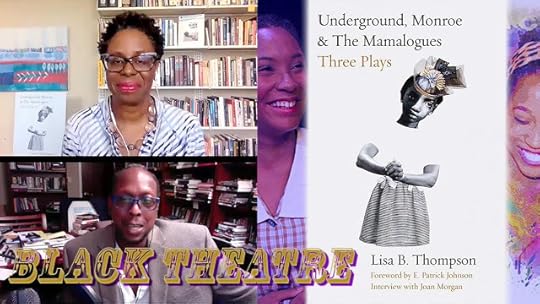
Dr. Lisa B. Thompson, prolific author, award-winning playwright, Black scholar, and professor of African and African Diaspora Studies at the University of Texas at Austin, sat down with Left of Black host Dr. Mark Anthony Neal to talk about her body of work and the joy of creating for the stage. Thompson’s plays, which have been produced off-Broadway, throughout the US and internationally, include “Single Black Female” (LA Weekly Theatre Award for Best Comedy nominee, Irma P. Hall Black Theatre Award Best Play winner), “Underground,” (Austin Critics Circle David Mark Cohen New Play Award winner, Broadway World Regional Awards Best Writing of an Original Work nominee), “Monroe” (Austin Playhouse Festival of New Texas Plays winner), “The Mamalogues” (Broadway World Regional Awards Best Writing of an Original Work winner), and “Dinner” (Crossroads Theatre Genesis New Play Festival). You can find her latest publication, Underground, Monroe, and The Mamalogues: Three Plays, published by Northwestern University Press,“ published by Northwestern University Press.
The Quarantine Tapes 131: Alex Vitale
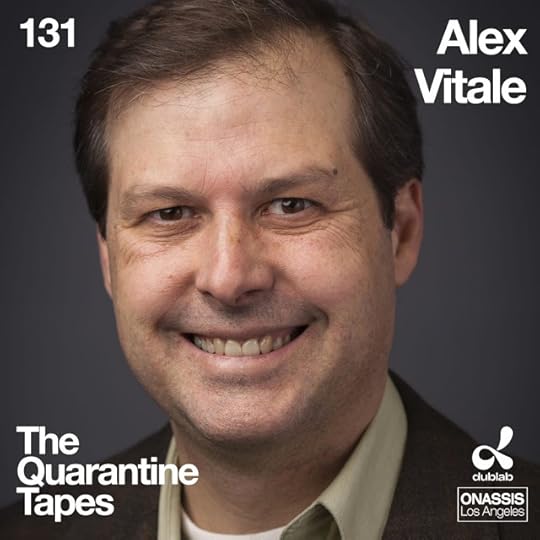
'Paul Holdengräber is joined by Alex Vitale on episode 131 of The Quarantine Tapes. Alex is a Professor of Sociology who has written extensively on policing. In the last few months, Alex has found himself incredibly busy working to translate the message of “Defund the Police” and what it could mean to rethink our reliance on police as the solution to social problems. Alex and Paul have a fascinating conversation about the origins of policing, how Alex came to this subject, and what it can look like to start shrinking the influence of police and reinvesting in community programs. Alex breaks down his perspective on abolition and offers a vision for a future with a radically different understanding of justice and public safety.'
November 25, 2020
Thanksgiving 2020: Grateful for New Hope and New Direction in Our Nation by Ben Jealous
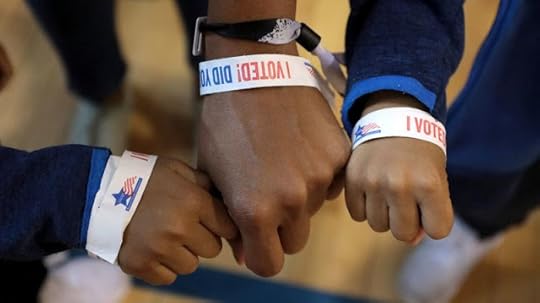
Thanksgiving 2020: Grateful for New Hope and New Direction in Our Nation
by Ben Jealous | @BenJealous | special to NewBlackMan (in Exile)
This hasn’t been a normal year, and it isn’t going to be a normal Thanksgiving.
Instead of looking forward to family and feasting, many of us are listening to health officials begging us to avoid large gatherings, and we’re weighing the risks against our deeply felt desire to be with our loved ones.
Let’s be honest. 2020 has been a brutal year. Many are grieving the loss of loved ones. Many have lost jobs and businesses and the security they bring our families. Students and educators have had to learn and teach in new ways. Some struggle with isolation and others with forced confinement in uncomfortable or unsafe situations.
On top of that, we have all been let down by our national leaders, especially a president who played politics with public health—and is now trying to undermine whatever faith Americans still share in our democracy.
And still, Thanksgiving is here.
My faith encourages us to try to be thankful in all things. I think that may be most important during the hardest times in our lives. During a year like this one, I appreciate the wisdom of our having a national tradition of pausing to count our blessings no matter what else is happening.
Thanksgiving means family to me. I’m thinking about my 104-year-old grandmother, who has given thanks through periods of war, civil strife, and economic devastation. I’m grateful for the lessons her life teaches me about commitment, calm, courage, and perseverance.
I am also thinking about my children, and my gratitude that this election gives me hope for their future. It renews my faith that together we can create a country that will give them every opportunity to follow their dreams.
Thanksgiving and nationalism can be mixed in unhealthy ways. Yet this year, I feel a special patriotic gratitude to live in a country where we are free to choose our leaders.
And I’m proud that Black people showed once again that we can shape our future by pushing back against the corruption and unprincipled power plays and institutionalized racism that are used to try to keep us from participating fully in our democracy.
I am grateful for the multiracial, multigenerational social justice movement that has been brought into being to challenge unjust policing. I’m grateful for all the young people who made their first run for public office. And I am especially grateful for leaders and organizers who use their God-given talents and their hard-won skills and experience to organize, motivate, and mobilize our people--leaders like Stacey Abrams and so many others who worked to bring change to their cities and states—and our country.
Of course, there’s more to do. We have important Senate elections coming up in Georgia. And next year, we’ll make many demands on local, state, and national officials to address the issues that affect our lives and our future.
For now, let us be grateful for new hope and new direction in our nation, and for everyone who has given of themselves to help our neighbors and strengthen our communities.
And after we pause to give thanks for our freedom and our accomplishments, let’s resolve to be, in the words of the great gospel song, “in no ways tired” of seeking justice and creating positive change. Then we’ll have even more to be grateful for next Thanksgiving.
+++
Ben Jealous serves as president of People For the American Way and People For the American Way Foundation. Jealous has decades of experience as a leader, coalition builder, campaigner for social justice and seasoned nonprofit executive. In 2008, he was chosen as the youngest-ever president and CEO of the NAACP. He is a graduate of Columbia University and Oxford, where he was a Rhodes Scholar, and he has taught at Princeton and the University of Pennsylvania.
“No Peace” – Salaam Remi feat. Busta Rhymes Black Thought Doug E. Fresh & Mumu Fresh (Official Video)
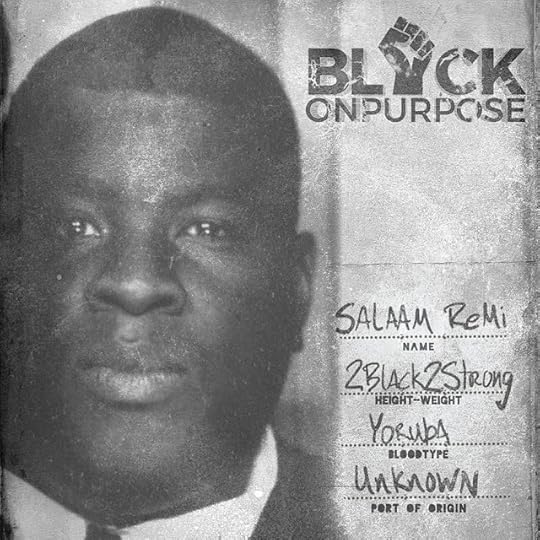
From the Black on Purpose, official video for "No Peace" by Salaam Remi feat. Busta Rhymes, Black Thought, Doug E. Fresh, and Mumu Fresh.
A Writer's Journey: In Conversation with Deesha Philyaw
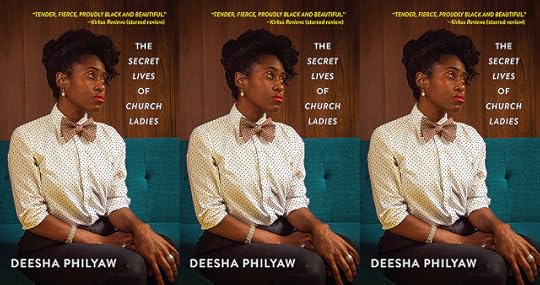
'Nicholas Roman Lewis talks with Deesha Philyaw, author of the critically acclaimed book, The Secret Lives of Church Ladies.' -- Revolutionary Daydreams
Mark Anthony Neal's Blog
- Mark Anthony Neal's profile
- 30 followers



